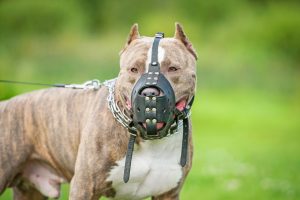In Naperville, Illinois, dangerous dog hearings are an important legal process designed to address incidents involving aggressive or potentially dangerous dogs, especially those that have been involved in a dog attack. These hearings aim to protect public safety while ensuring that pet owners have an opportunity to present their case. Here’s a comprehensive overview of what dangerous dog hearings entail in Naperville and how they are conducted.
What Constitutes a Dangerous Dog?
Under Illinois law and local Naperville ordinances, a dog may be classified as dangerous if it:
- Exhibits Aggressive Behavior: This includes unprovoked attacks on people or other animals, or behaviors that suggest the dog could pose a threat to public safety.
- Causes Injury: A dog that bites or causes injury to a person or another animal without provocation.
- Repeatedly Escapes: A dog that repeatedly escapes its owner’s property and displays threatening behavior.

Reporting an Incident
If an individual encounters a dog they believe to be dangerous, they can report the incident to DuPage County Animal Control or the Naperville Police Department. The report should include:
- Details of the incident
- Description of the dog
- Identification of the dog’s owner, if known
- Witness statements, if available
Investigation Process
Once a report is filed, an investigation is conducted by DuPage County Animal Control or the police. The investigation may include:
- Interviewing the complainant and any witnesses
- Examining the scene of the incident
- Reviewing any available video footage or photographs
- Assessing the dog’s behavior and any prior incidents involving the dog
Notification and Hearing
If the investigation supports the claim that the dog is dangerous, the owner is notified, and a dangerous dog hearing is scheduled. The owner receives a formal notice outlining the allegations and the date, time, and location of the hearing.
Conducting the Hearing
The dangerous dog hearing is a formal process where both the complainant and the dog owner can present evidence. Key elements of the hearing include:
- Presentation of Evidence
- Complainant’s Evidence: The person who reported the incident presents their case, including any witness testimony, medical reports, photographs, or other relevant documentation.
- Owner’s Defense: The dog owner can present evidence in defense of their dog, which may include character witnesses, veterinary records, and evidence of training or behavior modification efforts.
- Testimony
Both parties may call witnesses to testify. This can include animal control officers, neighbors, veterinarians, or behaviorists who have interacted with the dog.
- Cross-Examination
Each party has the opportunity to cross-examine the other’s witnesses, challenging the accuracy and reliability of their testimony.
- Deliberation and Decision
After hearing all the evidence, the hearing officer or board deliberates and makes a determination. The decision can include various outcomes, such as:
- No Action: If the evidence does not support the claim, no action is taken.
- Deemed Dangerous: If the dog is deemed dangerous, specific requirements and restrictions may be imposed on the owner, such as:
- Muzzling the dog in public
- Installing secure fencing
- Completing obedience training
- Obtaining special insurance
- Keeping the dog on a short leash
- Deemed Vicious: In severe cases, the dog may be deemed vicious, leading to more stringent restrictions or even euthanasia.
Post-Hearing Requirements
If the dog is deemed dangerous or vicious, the owner must comply with all imposed restrictions. Failure to do so can result in penalties, including fines and further legal action. The dog may be subject to periodic reviews to ensure compliance.
Appeal Process
The dog owner has the right to appeal the decision if they believe it was unjust. Appeals must be filed within a specified period, and a higher authority will review the case, which may involve a new hearing.
Importance of Legal Representation
Given the serious implications of a dangerous dog designation, both complainants and dog owners may benefit from legal representation. An experienced attorney can help present evidence, cross-examine witnesses, and navigate the legal complexities of the hearing process.
Dangerous dog hearings in Naperville, Illinois, play a crucial role in maintaining public safety while balancing the rights of pet owners. These hearings involve a thorough investigation, a formal presentation of evidence, and a fair deliberation process to determine the appropriate outcome. Understanding the procedures and legal standards involved can help all parties effectively navigate these hearings and contribute to a safer community.
If you have been bitten or attacked by a dog, you should take immediate action in order to protect your legal rights. Our Naperville personal injury lawyers have extensive experience litigating and settling dog bite cases for our clients. For more information about how you may be entitled to receive compensation for your dog bite injuries, contact the Naperville Dog Bite Lawyers at John J. Malm & Associates.
 Naperville Personal Injury Lawyer Blog
Naperville Personal Injury Lawyer Blog

